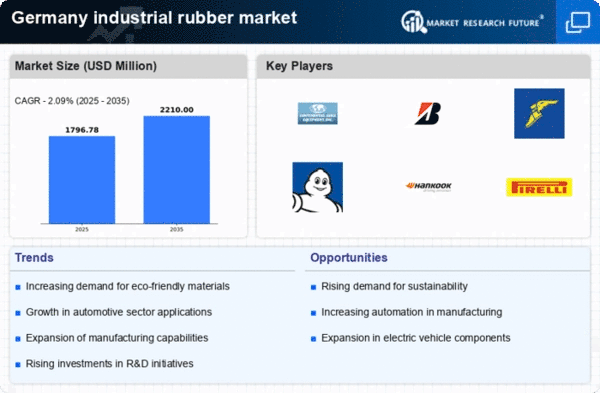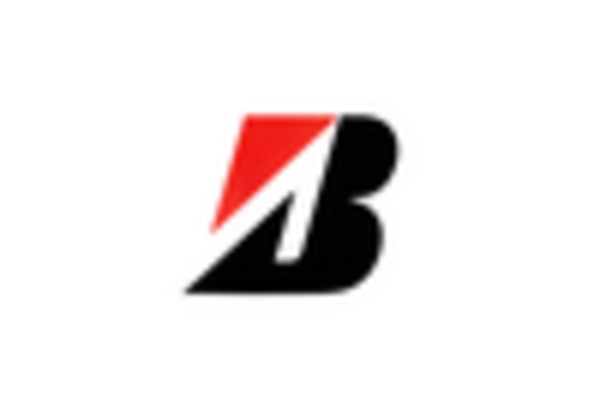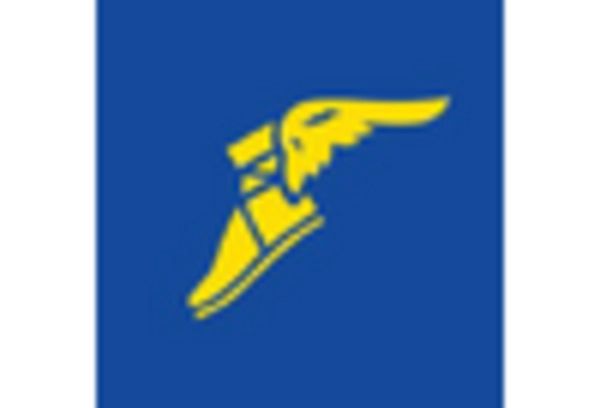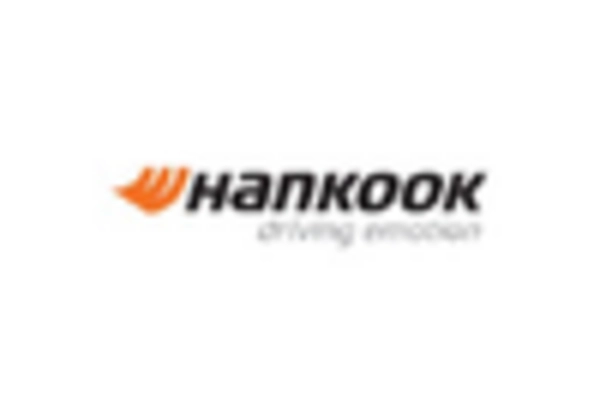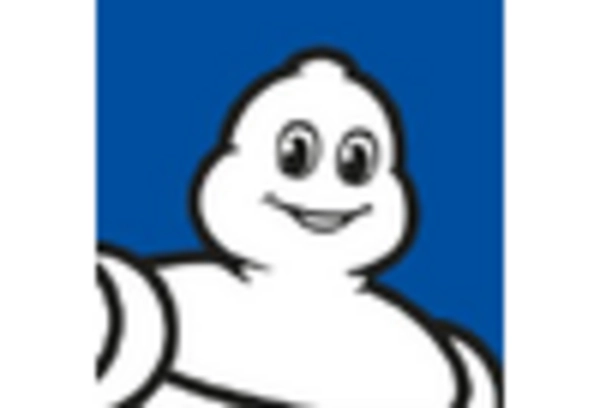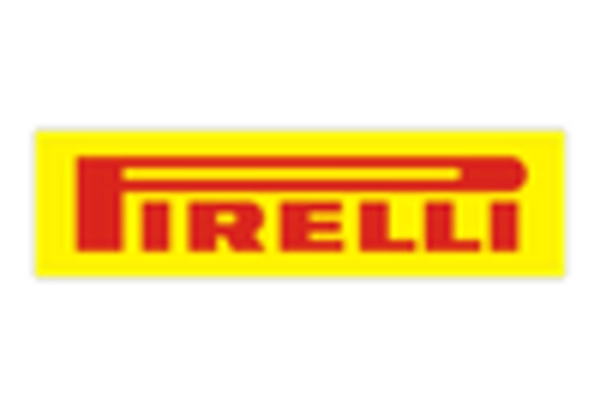The industrial rubber market in Germany is characterized by a competitive landscape that is both dynamic and multifaceted. Key growth drivers include the increasing demand for high-performance materials across various sectors, such as automotive, construction, and manufacturing. Major players like Continental AG (DE), Bridgestone Corporation (JP), and Michelin (FR) are strategically positioned to leverage innovation and sustainability in their operations. For instance, Continental AG (DE) focuses on developing advanced rubber compounds that enhance tire performance while reducing environmental impact, thereby aligning with the growing emphasis on sustainability in the automotive sector. This collective strategic focus on innovation and sustainability shapes a competitive environment that is increasingly oriented towards meeting regulatory standards and consumer expectations.In terms of business tactics, companies are increasingly localizing manufacturing to enhance supply chain efficiency and reduce lead times. The market structure appears moderately fragmented, with several key players exerting significant influence. This fragmentation allows for a diverse range of products and innovations, yet the presence of dominant firms like Goodyear Tire & Rubber Company (US) and Pirelli & C. S.p.A. (IT) suggests a competitive hierarchy where larger entities can leverage economies of scale and advanced technologies to maintain market share.
In October Bridgestone Corporation (JP) announced a strategic partnership with a leading technology firm to develop AI-driven predictive maintenance solutions for industrial rubber applications. This move is likely to enhance operational efficiency and reduce downtime for clients, positioning Bridgestone as a leader in integrating technology with traditional rubber manufacturing processes. Such initiatives not only improve product offerings but also align with the industry's shift towards digital transformation.
In September Michelin (FR) unveiled a new line of eco-friendly tires made from sustainable materials, which is expected to capture a growing segment of environmentally conscious consumers. This strategic initiative underscores Michelin's commitment to sustainability and innovation, potentially setting a benchmark for competitors in the market. By prioritizing eco-friendly solutions, Michelin may enhance its brand reputation and customer loyalty, which are crucial in today's competitive landscape.
In August Goodyear Tire & Rubber Company (US) expanded its manufacturing capabilities in Germany by investing €50 million in a new facility focused on producing high-performance rubber products. This expansion not only signifies Goodyear's confidence in the German market but also reflects a broader trend of companies investing in local production to meet rising demand. Such investments are likely to bolster Goodyear's competitive position and enable it to respond more effectively to market needs.
As of November current competitive trends in the industrial rubber market are heavily influenced by digitalization, sustainability, and the integration of AI technologies. Strategic alliances are increasingly shaping the landscape, allowing companies to pool resources and expertise to drive innovation. The competitive differentiation is expected to evolve from traditional price-based competition towards a focus on technological advancements, sustainable practices, and supply chain reliability. This shift indicates that companies that prioritize innovation and adaptability will likely emerge as leaders in the market.


